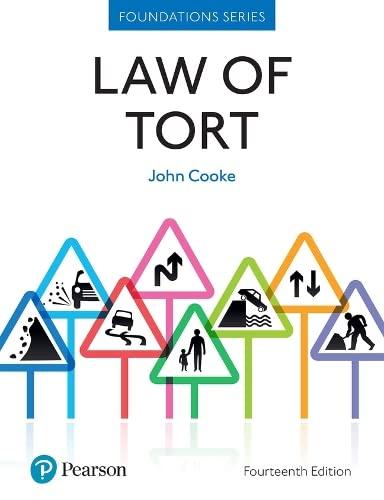I have a moot exam tomorrow and am lead appellant for the case attached. I am very confused about what submissions to make for the first ground of appeal
Hurley v Grant Henrietta Hurley, a film star, wanted a summer house and a swimming pool constructed in her back garden. She put the job out to tender and accepted the offer of Geraldine Grant, a building contractor, who agreed to do the work for E5,000. Both Geraldine and Henrietta knew that this was an unrealistically low price. Geraldine, having completed the summer house and begun construction of the swimming pool ran out of money and materials for the job. Geraldine told Henrietta that she could not complete the job unless further capital was made available to her. Henrietta, who had arranged a poolside party to which she had invited top film directors from which she hoped to win new roles, was desperate to have the pool completed. She tells Geraldine, "Dahling, you have me over a barrel." Henrietta agreed to lend Geraldine $3,000 in order to buy the materials necessary to ensure that the pool was completed, the money to be repaid when Geraldine secured her next contract. The pool was completed; the party was a success and Henrietta was awarded the starring role in the new movie "Four Funerals and a Car Drive." Henrietta tells Geraldine, "Dahling, you have saved my career. Don't worry about the $3,000." Geraldine starts a new project, whereas Henrietta's new film is a complete flop. Henrietta sues Geraldine for the $3,000 on either of two grounds: (i) As an ordinary debt; (ii) The money was extorted by duress. Divine J. held: The rule in Pinnel's Case (1602) 5 Co. Rep 117, was modified by Williams v. Roffey Brothers [1990] 2 WLR 1153, and therefore the completion of Henrietta's pool was capable of constituting and constitutes a benefit in fact which was sufficient consideration for Henrietta's payment of the extra $3,000. Further, Henrietta's promise to pay $3,000 was not procured by Geraldine's economic duress, because although Geraldine exerted illegitimate pressure by threatening to break her contract, Henrietta's will was not overborne by Geraldine's behaviour. Pao On v. Lau Yiu [1980] AC 614 applied. The Court of Appeal upheld the decision of Divine J. Henrietta now appeals to the Supreme Court on two grounds: (i) Divine J. erred in law in holding that Pinnel's Case (1602) 5 Co. Rep 117, had been modified by Williams v. Roffey Brothers [1990] 2 WLR 1153 ii) It is not a necessary ingredient in an action for the recovery of money paid under economic duress that the payor's will was overborne







